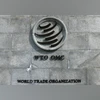India will oppose any work programme or a negotiation mandate on non-trade issues such as environment, gender and micro, small and medium enterprises (MSMEs) at the World Trade Organization’s (WTO’s) biennial meeting scheduled for the month-end.
Government officials said India is against any work programme or a roadmap for these issues, as well as linking of MSMEs and gender with trade.
“We are also against any mandate for negotiations (in these areas) in the future,” one of the officials said on Wednesday.
The 13th Ministerial Conference (MC) will be held during February 26-29 in Abu Dhabi, United Arab Emirates (UAE).
India will continue to maintain its stand that labour and environment are non-trade issues and should not be discussed at the WTO and trade barriers should not be erected under the guise of sustainable development.
There are multilateral forums like the United Nations where these issues can be discussed, another government official said. “There are specialised bodies where these issues should be discussed. These are not trade issues but have a trade implication,” the official said.
More From This Section
Ahead of MC13, developed nations are pushing to begin formal talks on these non-trade issues.
Developed countries also want to include women’s economic empowerment issues in the WTO talks. India believes that this is a social and domestic matter and there are specialised conventions of the UN to discuss them.
“So, we will not agree to any work programme. We will agree to discussions to promote sustainable development but our rights and obligations should not be impacted,” the official added.
“The purpose of the trade is to ensure sustainable development. So under the guise of this, developed countries cannot erect protectionist barriers, this is our submission,” the official said.
Another official said the European Union’s (EU’s) carbon border adjustment mechanism (CBAM) and deforestation laws are cases of dragging environmental issues into trade matters.
The issue of the EU rolling out CBAM — which is applicable to all countries — however, cannot be discussed by the ministerial.
The matter is being discussed between India and the EU bilaterally.
“Such measures may not only violate the rules of the WTO but also have systemic implications for international law as a whole, since unilateral action undermines multilaterally negotiated rights and obligations of countries,” the official said.
)